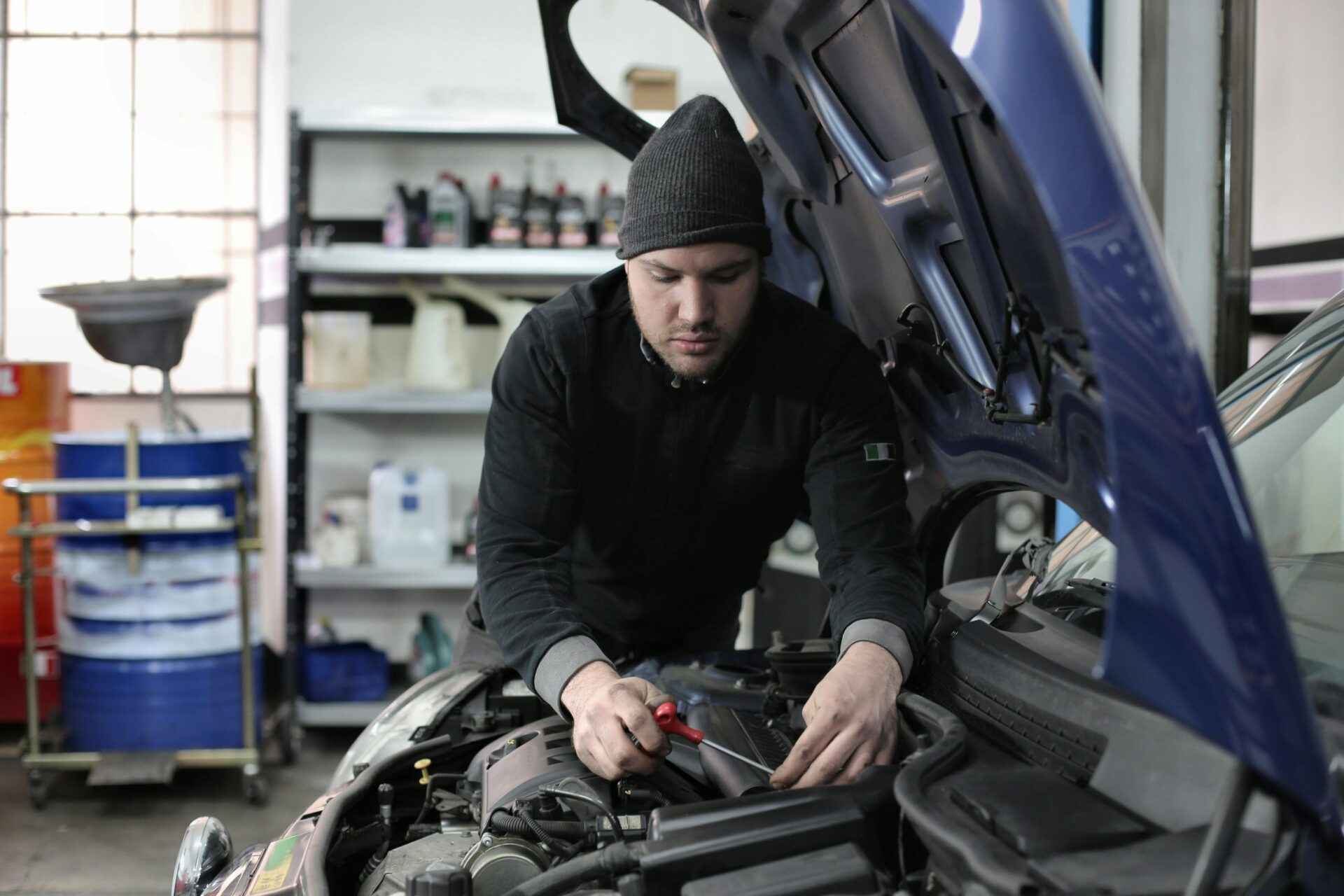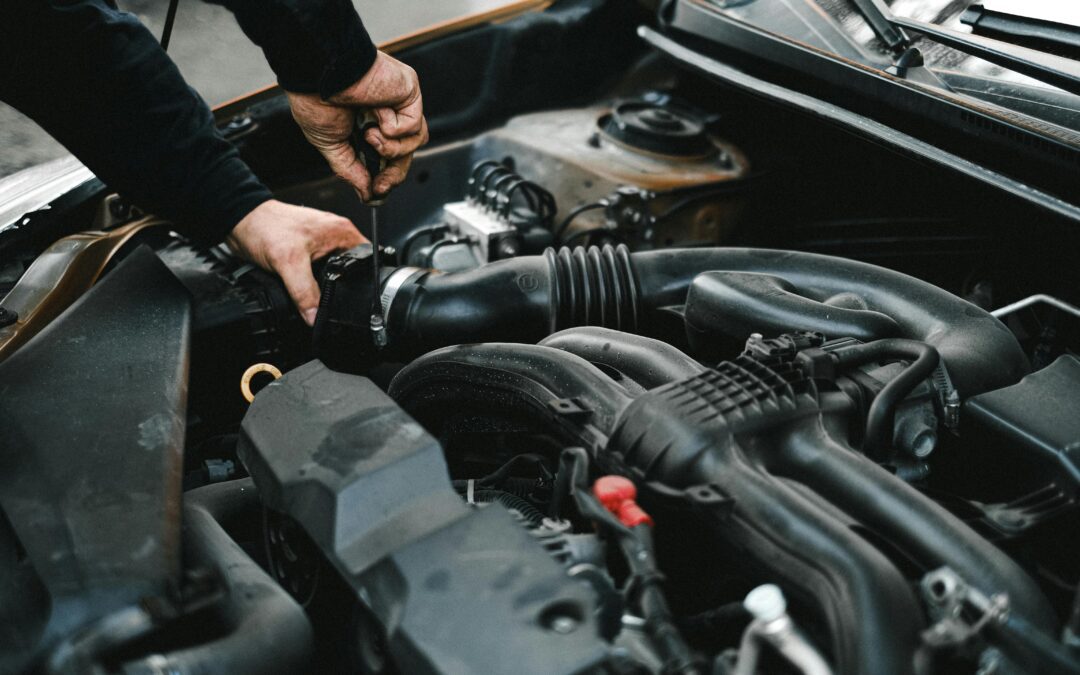Previously, we explored what smog checks are and how to prepare for them. Today we’ll look deeper into the most common reasons why your vehicle may fail a smog check.
Why Your Car Fails a Smog Check If It’s Due for an Oil Change
Engine oil lubricates moving parts, reduces friction, and helps dissipate heat. Over time, engine oil becomes contaminated with dirt, debris, and combustion byproducts. As it degrades, its ability to perform its key functions diminishes, leading to increased engine wear and reduced efficiency.
During a smog check, car technicians analyze your car’s emissions to ensure they fall within acceptable limits. If the engine oil is old and contaminated, it increases the emissions of HC, CO, and other pollutants. This can result in a failed smog check, even if the vehicle’s engine is otherwise in good condition.
The frequency of oil changes recommended by vehicle manufacturers varies depending on factors such as driving habits, climate, and the type of oil used.
Dirty Air Filter
The air filter in your car traps dirt, dust, pollen, and other debris before it can enter the engine’s intake system. It ensures that only clean air reaches the combustion chamber, maintaining optimal engine performance, fuel efficiency, and emissions control.
When the air filter becomes clogged, it restricts air flow into the engine. This restriction can disrupt the air-fuel mixture, leading to inefficient combustion and reduced engine performance. Symptoms of a clogged air filter may include decreased acceleration, rough idling, and decreased fuel economy.
A dirty air filter can cause increased emissions of HC, CO, and NOx, potentially leading to a failed smog check. Even if your car’s engine is otherwise in good condition, a clogged air filter can tip the emissions balance beyond acceptable limits.
Most manufacturers recommend replacing the air filter every 12,000 to 15,000 miles, but this interval may vary depending on driving conditions and air quality. If you frequently drive in dusty or polluted environments, you may need to replace the air filter more often.
Problems with the Spark Plugs
Spark plugs ignite the air-fuel mixture within the engine’s combustion chamber, generating the spark needed to initiate combustion, powering the vehicle’s engine. However, they endure extreme temperatures and pressures, making them prone to wear and degradation over time.
When spark plugs fail or malfunction, they can disrupt combustion, leading to various performance issues. Common symptoms of faulty spark plugs include rough idling, misfires, decreased acceleration, and poor fuel efficiency.
Problems with spark plugs can cause incomplete combustion, resulting in unburned fuel and increased emissions of harmful pollutants. Faulty spark plugs can also cause misfires, which can lead to higher levels of hydrocarbons (HC) and carbon monoxide (CO) in the exhaust gases. These pollutants are precisely what smog checks aim to measure and control.
A general rule of thumb is to replace the spark plugs every 30,000 to 100,000 miles, depending on the type of spark plug and driving conditions. Keep in mind that factors like poor fuel quality, excessive idling, and aggressive driving can accelerate spark plug wear and necessitate earlier replacement.
Fuel System Leaks

The fuel system in your car is responsible for storing, delivering, and combusting fuel to power the engine. It consists of various components, including fuel lines, fuel injectors, and the fuel tank, all interconnected to ensure a seamless flow of fuel. Over time, wear and tear or damage can lead to leaks in this system.
These leaks allow fuel to escape from the system, resulting in decreased fuel efficiency, engine performance issues, and the release of harmful pollutants into the atmosphere. When fuel leaks from the system, it evaporates into the air or drips onto hot engine components, vaporizing and reacting with other pollutants. This process can lead to increased emissions of hydrocarbons (HC).
Regular inspection and maintenance of the fuel system includes the following:
- Checking fuel lines, fittings, and seals for signs of wear or damage
- Using high-quality fuel
- Making sure not to overfill the tank
Catalytic Converter Problem
The catalytic converter contains a catalyst—a combination of precious metals such as platinum, palladium, and rhodium—that facilitates chemical reactions to convert harmful gases into less harmful ones. Specifically, it reduces nitrogen oxides (NOx), carbon monoxide (CO), and hydrocarbons (HC) into nitrogen, carbon dioxide, and water vapor.
Unfortunately, catalytic converters are not immune to wear and tear. Over time, they can become contaminated, clogged, or damaged due to engine misfires, oil or coolant leaks, or the accumulation of carbon deposits.
When the catalytic converter malfunctions, it can no longer effectively reduce emissions, leading to increased levels of pollutants in the exhaust gases.
Keeping your engine properly tuned, fixing any underlying issues promptly, and avoiding activities that can damage the converter (such as driving through deep water) can help prolong its lifespan and effectiveness.
Gas Cap Is Too Loose
The gas cap prevents fuel vapors from escaping into the atmosphere. It ensures that the fuel system remains pressurized, maintaining optimal fuel efficiency and reducing harmful emissions. Additionally, the gas cap helps prevent dirt, dust, and debris from entering the fuel tank.
If your car’s gas cap is too loose or missing, it can result in higher emissions of VOCs, potentially causing the vehicle to fail the emissions portion of the smog inspection. Even a minor issue with the gas cap can have significant consequences for your vehicle’s emissions performance.
Inspecting the gas cap for signs of wear, damage, or deterioration and ensuring it is securely tightened after refueling can help prevent fuel vapor leaks and emissions issues. Additionally, promptly replacing a damaged or malfunctioning gas cap can help maintain your vehicle’s emissions integrity.
At E-Z Smog, we are here to help your vehicle pass the smog check with flying colors. We can help you identify why your car fails a smog check and help you fix any issues. Contact us today to schedule your appointment!


